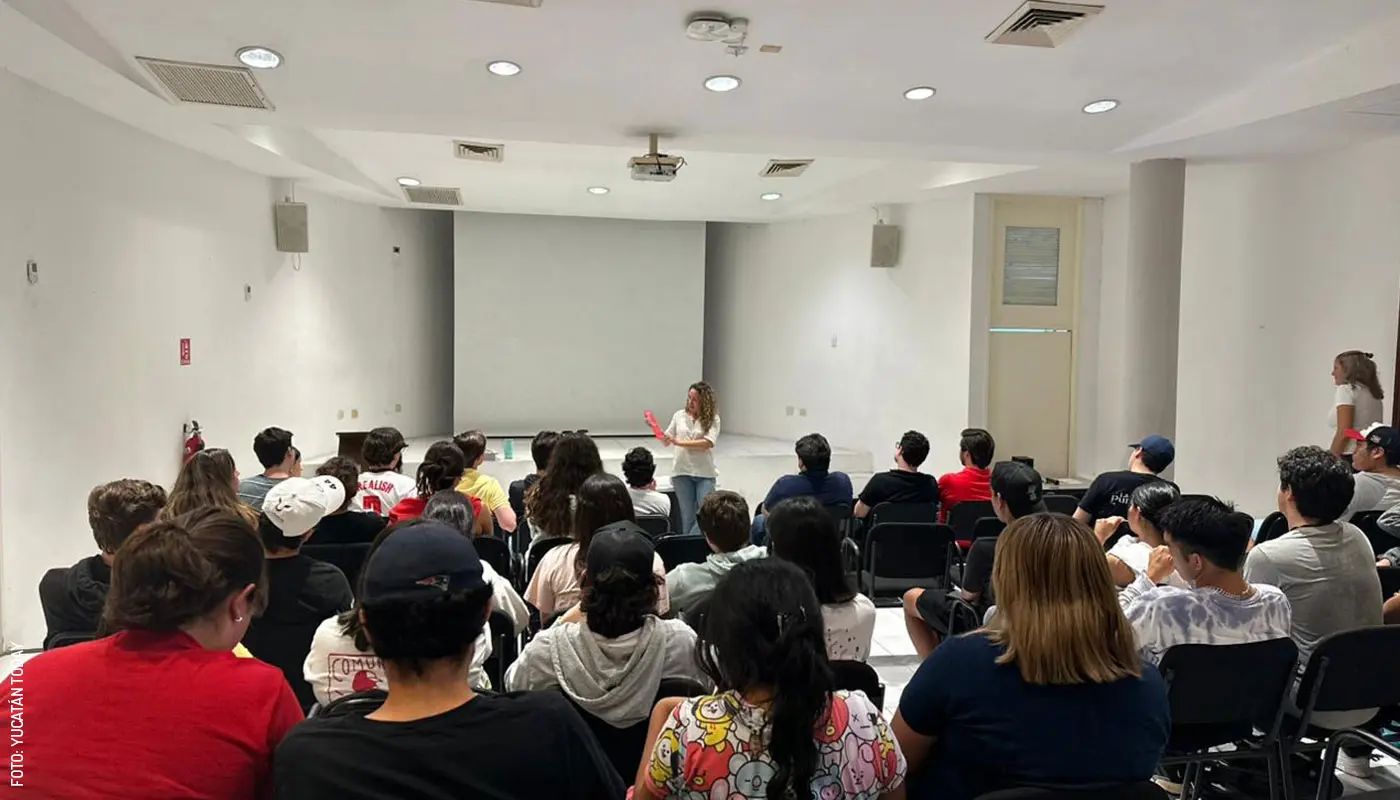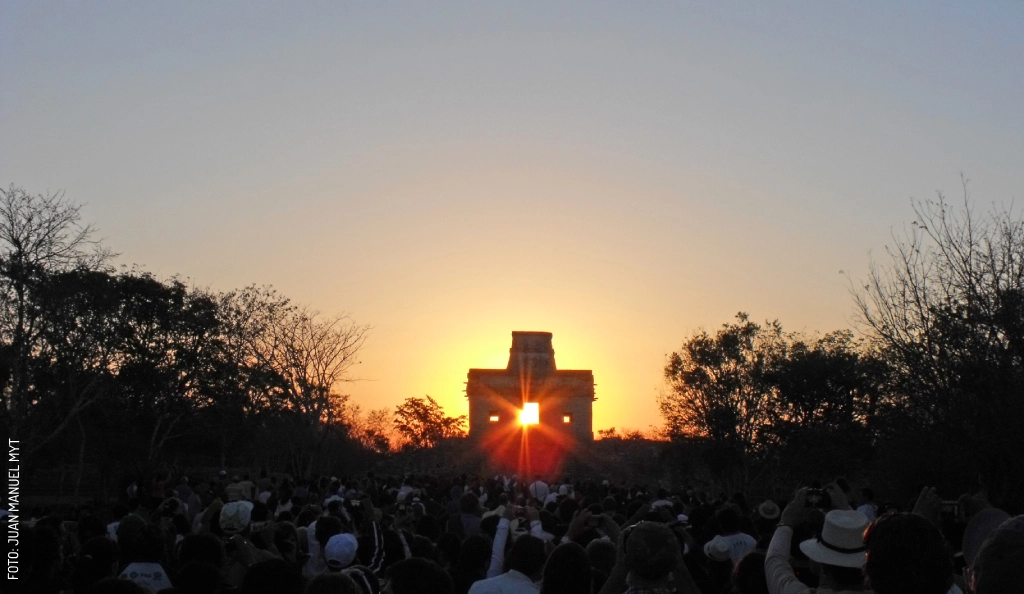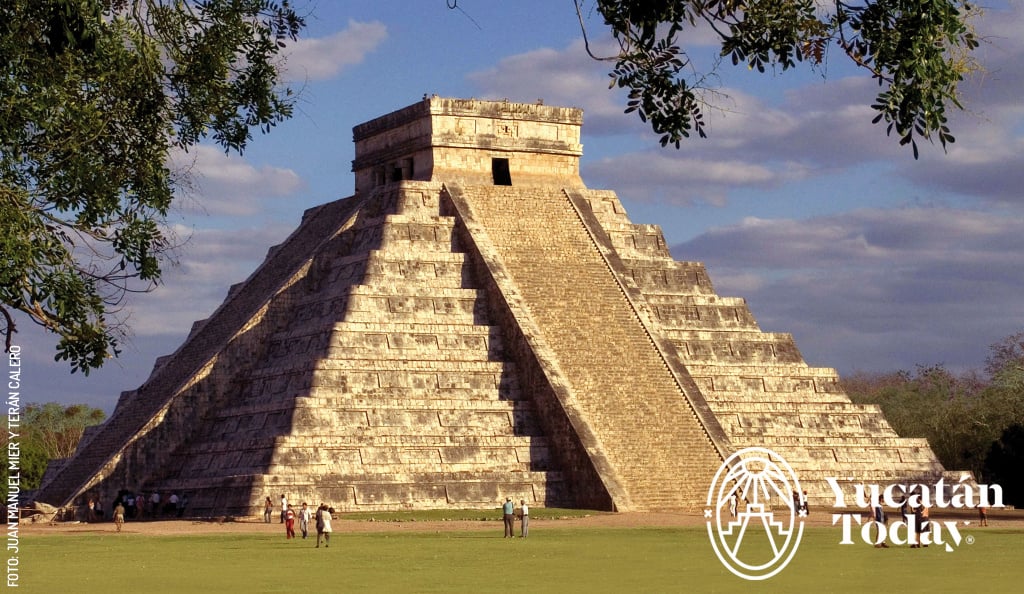- Home
- Living in Yucatan
- Study in Yucatan
Studying in Yucatán
Yucatán, México, is a regional hub for higher education and research. Find out why people from all over the world choose to study in Yucatán.

Studying in Yucatán, México
Long before digital nomads discovered Yucatán as a top destination to live, grow, and raise a family, this Mexican state was already a prominent option to pursue higher education in the region. This to the point that, by 2020, Yucatán was already the Mexican state with the highest percentage of out-of-state students enrolled in higher education institutions, according to the Mexican Competitiveness Institute (IMCO). This is due to a combination of several unique factors.
Security
First of all is, of course, the security that Yucatán offers. Yucatán is one of the safest states in México, which has been an increasingly important reason why both students and their families see our state as a very attractive destination for education.
Location
Another important factor is Yucatán’s privileged location. Did you know there are seven countries within a 1000 km (620 mi) radius of the state capital, Mérida? Those would be the United States, Cuba, the Cayman Islands, Guatemala, Belize, Honduras, and Nicaragua. Within México, the same radius includes, of course, our neighboring states of Campeche and Quintana Roo, but also Tabasco, Chiapas, Veracruz, Oaxaca, Puebla, and even México City.
Unique objects of study
And then there’s Yucatán’s unique features that make it especially attractive for certain fields of study: its biodiversity for life sciences; its particular terrain, for geosciences; and its rich history and culture (Maya, colonial, and then particularly Yucatecan) for social sciences.
Quality education
As important as the above factors are, however, the main reason why Yucatán has a preeminent position as an exceptional higher education destination is the outstanding quality of education offered by its local institutions.
Here are some numbers that illustrate the above. Out of 32 states in México, Yucatán is ranked 8th in science productivity, 6th in patent registration, and 5th in the rate of qualified researchers (accredited by the National Science Council) per capita. If we look at the researchers by field of study, Yucatán is ranked 2nd nationwide in the number of researchers (per capita) in biotechnology and agriculture; 3rd nationwide in mathematics; and 4th nationwide in biology and chemistry.
Education in Yucatán, in numbers
There are 132 higher education institutions registered as such in Yucatán; of those, 26 are public and 106 are private. Together, they offer a total of 790 undergraduate programs (including associate, bachelor’s, and teaching degrees) and 340 graduate (master’s and Ph.D.) programs, for a total of 1,130, at least 213 of which boast at least one quality accreditation.
As far as enrollment goes, according to figures published in 2021, there was a total of 85,859 students enrolled in Yucatán’s 132 higher education institutions; 52% of them identified as female, and 48% as male. It’s worth noting that, out of those almost 86,000 students, 50% is enrolled in one of the state’s 26 public institutions.
Yucatán’s inbound international mobility
The numbers above do not account for the students who come to Yucatán through short mobility programs (that is, short-term exchange students), or those who travel as part of a language, research, or cultural immersion internship. That’s not to say the number of students in these situations is negligible. Several international universities, such as Michigan State University, Texas A&M University and Central College (Iowa), have a local presence (and, in some cases, even dedicated local offices) to manage the flow of short-term arrivals.
In other words, Yucatán is a state where quality education is accessible and equitable, and recognized as such both nationally and internationally.
Yucatán’s higher education institutions and systems: Public institutions
There are more appropriate sources if you’re looking for a comprehensive list of the 132 higher education institutions in Yucatán. There are a few, however, that stand out for reasons like the number of students, their scope, their history, or educational level. Here are a few you should know about if you’re planning to study in Yucatán.
1. Universidad Autónoma de Yucatán (Autonomous University of Yucatán)
The Universidad Autónoma de Yucatán (UADY) is the state’s premier higher education institution, and widely regarded as the best in southeast México, as it usually ranks high in quality higher education listings. It is also one of the oldest universities in the country (or, perhaps, the continent); while its modern history begins in 1922 (when it was founded by governor Felipe Carrillo Puerto), its origins date back to 1618, when it opened as the University of San Francisco Javier. In 1624, it was renamed Real y Pontificia Universidad de Mérida (the Royal and Pontifical University of Mérida) to reflect the royal decree and papal bull that recognized it as a higher education institution.
According to data from México’s Ministry of Economy, enrollment at UADY usually averages 19,000 higher education students every year, distributed in 47 programs across five campuses:
- The Architecture, Habitat, Art, and Design Campus, located in the former Franciscan convent of La Mejorada, after which the Mérida Barrio is named.
- The Life and Agricultural Sciences Campus, located south of Mérida, near the Xmatkuil fair pavilion, where the city’s Carnaval and the state fair (in November) are held.
- The Health Sciences Campus, along a stretch of Av. Itzáes, on the west end of the Santiago Barrio in Centro.
- The Exact Sciences and Engineering Campus, located north of Mérida, on the Dzityá Periférico exit.
- The Humanities and Social, Economic and Administrative Sciences Campus, located northeast of Mérida, on the exit towards Conkal and Motul.
- The Tizimín Multidisciplinary Unit, located on the northeastern region of Yucatán, in the City of Kings, Tizimín.
Each year, approximately 15,000 students are estimated to take the admission test for UADY’s different schools; there’s only room for about 4,000. The school with the highest demand (because of its reputation) is the UADY School of Medicine.
2. Universidad Nacional Autónoma de México (National Autonomous University of México)
The National Autonomous University of México (UNAM) is the country’s premier higher education institution. Despite being considered a single institution, its massive reach makes it equivalent to what’s known in other countries as a University System. To illustrate this institution’s impressive size, picture this: the total enrollment of its different schools across several campuses nationwide is well above 265,000 higher education students.
Several UNAM departments are present in Yucatán, offering both undergraduate and graduate programs, in addition to several laboratories and the recently inaugurated Museum of Light. These departments include:
- The National School for Higher Studies (Escuela Nacional de Estudios Superiores (ENES)), located west of the city, at the southern end of Caucel. Undergraduate programs include environmental, social, and earth sciences.
- The Applied Mathematics and Systems Research Institute (Instituto de Investigaciones en Matemáticas Aplicadas y en Sistemas (IIMAS)) has a Yucatán unit, also located within the ENES campus.
- The Institute of Ecology (Instituto de Ecología) has a National Sustainability Sciences Laboratory amphitheater at the same location.
- The Peninsular Center for Humanities and Social Sciences (Centro Peninsular en Humanidades y Ciencias Sociales (CEPHCIS)) has three locations in Mérida: two are in Centro and one in García Ginerés. In addition to undergraduate and graduate programs, they offer language courses open to the public.
- The Engineering Institute (Instituto de Ingeniería) has its Engineering and Coastal Processes Laboratory (Laboratorio de Ingeniería y Procesos Costeros (LIPC)) in Sisal; since 2009, they offer undergraduate and graduate degrees in applied oceanography and coastal-dynamics engineering.
- The School of Chemistry has a Chemistry Unit in Sisal, which happened to be the first that this school opened outside of México City. The School has a second lab within Yucatán’s Science and Technology Park in Sierra Papacal. Both focus on coastal chemistry studies.
3. Federal technology institutes (National Technological Institute of Mexico)
4. Public higher education institutions (overseen by the Yucatán state government)
Teacher training schools (Escuelas Normales)
- Escuela Normal de Educación Preescolar (Mérida)
- Escuela Normal de Educación Primaria "Rodolfo Menéndez de la Peña" (Mérida)
- Escuela Normal Superior de Yucatán "Profr. Antonio Betancourt Pérez" (Mérida)
- Escuela Normal de Dzidzantún
- Escuela Normal de Ticul
- Escuela Normal de Valladolid "Juan de Dios Rodríguez Heredia"
State technology institutes (Institutos tecnológicos descentralizados)
- Instituto Tecnológico Superior Progreso
- Instituto Tecnológico Superior de Motul
- Instituto Tecnológico Superior de Valladolid
- Instituto Tecnológico Superior del Sur del Estado de Yucatán (Oxkutzcab)
Technology and Polytechnic Universities
- Universidad Politécnica de Yucatán (Mérida)
- Universidad Tecnológica Metropolitana (Mérida)
- Universidad Tecnológica Regional del Sur (Tekax)
- Universidad Tecnológica del Poniente (Maxcanú)
- Universidad Tecnológica del Centro (Izamal)
- Universidad Tecnológica del Mayab (Peto)
5. Private higher education institutions in Yucatán
Artículos relacionados

Qué hacer en Yucatán en marzo

Detrás de las comparsas del Carnaval de Mérida: Esfuerzo, entrega y tradición





